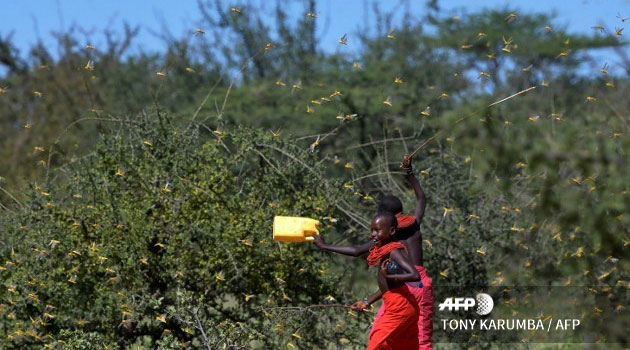WASHINGTON D.C., United States, Feb 20 – In response to the outbreak of desert locusts in East Africa, the United States, through the U.S. Agency for International Development (USAID), has announced that it will provide US$8 million in humanitarian assistance to support regional operations to control locusts in the Federal Democratic Republic of Ethiopia, the Republic of Kenya, and the Federal Republic of Somalia. By helping to reduce the size of the swarms, this aid is expected to have a positive impact on affected communities throughout the Horn of Africa.
The current outbreak of desert locusts is the worst to hit East Africa in decades: billions of pests are infesting the region, devouring crops and vegetation, and destroying livestock pastures. The new funding will support locust-control operations across the region, which include ground-based and aerial efforts.
This announcement brings the U.S. Government’s response to the outbreak of locusts to nearly $9 million, including funding already provided to the United Nations Food and Agriculture Organization in Ethiopia to control and prevent the spread of the infestation; train more than 300 pest experts and scouts; and provide 5,000 sets of protective equipment.

USAID has disaster experts in Ethiopia, Kenya, Somalia, and the Republic of South Sudan who are assessing humanitarian needs and coordinating response efforts with local governments and humanitarian organizations.
“They will work closely with these groups to determine whether additional assistance is necessary, based on evaluations made on the ground. The United States also calls upon other donors to contribute funds to the immediate needs of communities throughout the Horn of Africa,” USAID says in a statement.
The United States is also providing long-term funding to protect food security and livelihoods for the people of East Africa, as well as to strengthen institutional capacity for the detection, surveillance, reporting, and monitoring of locusts and other pests, and for additional preventative programs.























